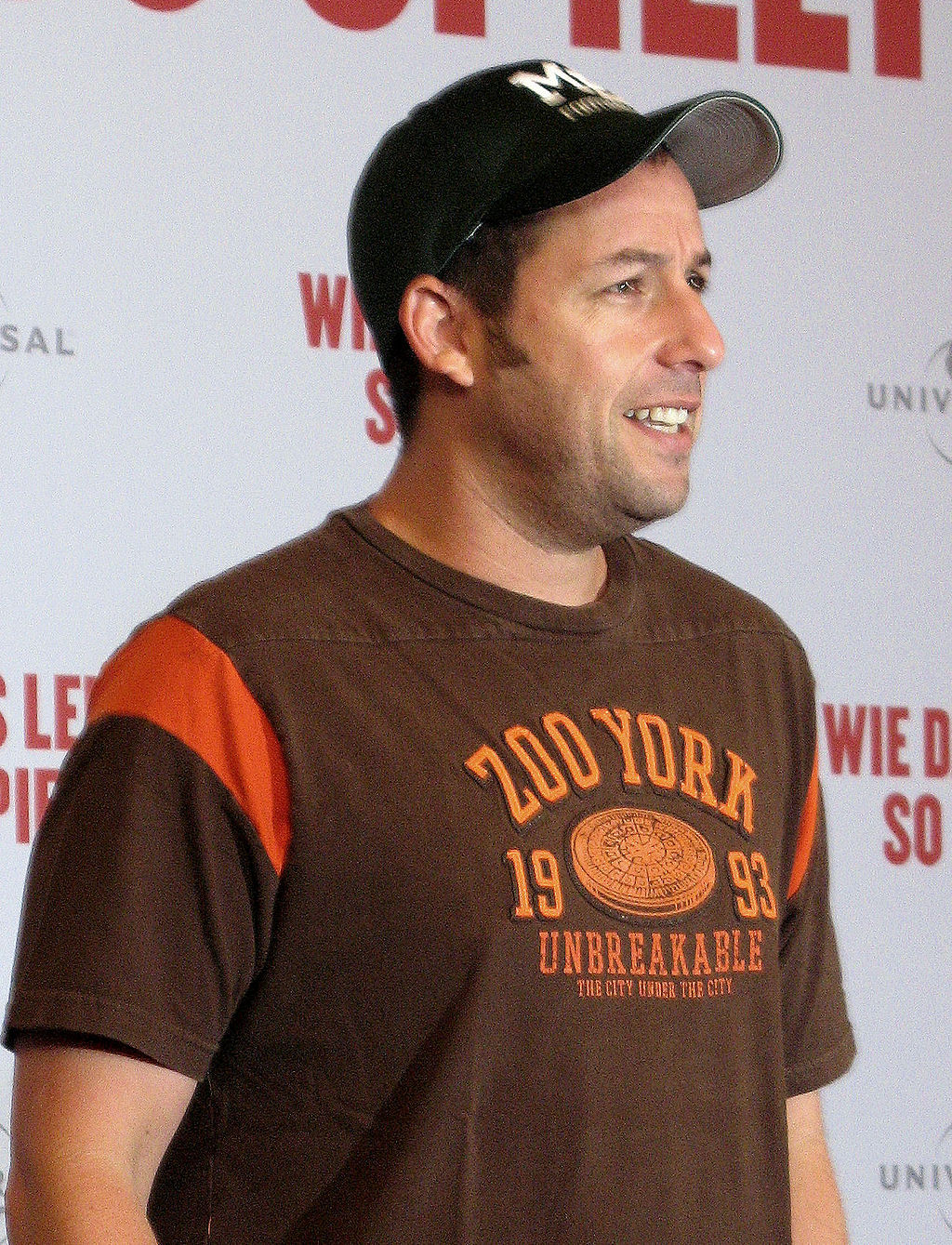 “Pixels” is a draining, unfunny misfire that does everything it can to ruin a promising premise, ruin a somewhat promising supporting cast and somehow manage to insult retro and modern gaming in one fell swoop.
“Pixels” is a draining, unfunny misfire that does everything it can to ruin a promising premise, ruin a somewhat promising supporting cast and somehow manage to insult retro and modern gaming in one fell swoop.
“Pixels” is about a group of grown-up arcade gamers played by Adam Sandler, Josh Gad, Peter Dinklage and Kevin James as they have to fight off an alien invasion that has taken recordings of arcade games from 1982 and based their technology off it because of no particular reason apparently. They are assisted in their fight by a checked-out Michelle Monaghan, Brian Cox as a lifeless gruff military man, and Sean “What the Hell are you Even Doing Here” Bean. It’s a mess, folks.
This is the kind of movie where you could potentially write an entire series of books detailing all the wrong “Pixels” does in a hundred and five minutes. Seeing as how I don’t have that luxury, consider this review a monument of the “greatest hits” for everything that is wrong with this colossal stain of horse backwash.
But before we get to that, let me first get what very few things the movie does right before getting into the bits that ruin all these positives and sink the whole production to the bottom of a weeping Stygian void.
There are occasional bits of dialogue that show there was indeed a writer typing words onto a page instead of a chimp flinging maggot-riddled filth at a wall. This is probably the best performance Kevin James has given in years. He plays a somewhat endearing, shlubby president pretty well, to be honest. Peter Dinklage looks like he’s having fun through most of it, and I’m assuming he got paid for doing it, and that’s nice. I’m glad someone had a good time.
He’s still not funny, which is a common trait every single cast member shares in this godforsaken waste of space. Each characteristic and line of dialogue drains every ounce of charisma Dinklage has until you start to question if this really is the same man who plays Tyrion Lannister. Adam Sandler sucks the life and energy out of every scene he’s in, which is practically all of it. I got the feeling he really didn’t care about anything he was saying or doing. I’m sure he’s heard of videogames a couple of times in his life, but even that is called into question by his six-month-old stale bread acting. Josh Gad, bless his snowman heart, is trying, but none of the secondhand “Big Bang Theory” jokes they saddled him with land and his character, like every other character here, is a completely unlikable garbage can of a human being.
And that brings me onto the movie’s biggest problem – the disrespect and contempt it holds for its source material. I am not saying every comedy needs to hold its source material in high esteem, but do we really need another one that does nothing but point and laugh at videogame culture? We have plenty of those. To its credit, “Pixels” doesn’t hold this contempt in any consistent or overt way, but it still manages to do just as much harm nonetheless.
The obvious stuff involves Josh Gad’s entire character; he is a basement-dwelling man-child who has formed a creepy attraction to a fictional arcade videogame heroine. This whole subplot deserves a stack of Larry David-shaped awards for being downright uncomfortable. Q-Bert has been turned into the most obnoxious trumpet-mouthed freak of nature in recent film memory, like some miniature squeaky-voiced Jar-Jar Binks. He also urinates himself, in case you thought the little guy could get out of this movie with a sliver of dignity. And the mere fact they didn’t care enough to know that “Duck Hunt” was released in 1984, making its place in the time capsule impossible, makes me question if all the other 80’s nods were also out of place. That may seem like a small gripe, but if you’re going to make a movie with such precise and important dates like this movie does, then you have to follow those rules otherwise nothing really matters. Why not have the Power Rangers show up if we’re just throwing stuff from whatever year in there? A Smurf shows up at one point, and they have nothing to do with arcade games, so why not? Years apparently don’t matter to the producers and writers..
During the film a comparison is made between the different styles of retro and modern gaming. Retro gaming, the movie says, is all about identifying patterns in the game and exploiting them in order to succeed. It has order and a clear idea of design behind every choice the developer has made. Modern gaming, by comparison, is about being a guy and not dying. Adam Sandler inevitably wins the day by adopting the latter style of gaming when it turns out the final boss no longer has identifiable patterns. Let’s pull apart all the wrong on display here.
It is insurmountably disrespectful to imply modern gaming studios do not give consideration to patterns or game design beyond “you’re a guy and you’re trying not to die.” The modern gaming example they trot out is “The Last of Us”, a game which can be bludgeoned through like a caveman, true, but if you don’t want to constantly die and face the horrors of endless loading screens, you need to be patient, watch your enemies, IDENTIFY PATTERNS and then make your move. Game developers, especially those like Naughty Dog (the developer behind “The Last of Us”) do spend a great deal of time making sure there are patterns and paths to follow.
More than that, saying the arcade gamers in this movie have to get over their archaic principles and adopt this false perception of what modern gaming is in order to succeed is insulting to them and is trying to further stir the pot of bad blood between these two camps. It’s amazing how they managed to call one side insipid and the other outdated with a single plot point. They could have done something inspired with this angle, but choose instead to dance gleefully down the easy road.
“Pixels” also has some surprisingly amateur editing. When you’re filming scenes and editing a movie, you want to make sure the transitions between cuts are as seamless as possible so there’s consistency with where actors are and the actions they perform are continuous. I explain this very simple tenant of filmmaking because this is something the movie forgets as shots constantly misalign, characters and action often don’t match up from shot to shot, and it gets distracting.
Then there’s the misogyny. During the movie’s climax, Josh Gad’s completely silent fetishistic blank slate arcade game girlfriend disappears when the rest of the pixel aliens are defeated, but then is brought back when Q-Bert, for no conceivable reason, transforms into her so she can be Gad’s literal trophy and the two of them have had lots of little disgusting Q-Bert babies in an after credits scene. This is a thing that happens in this movie that everyone was okay with. Figure that out.
There are also the frequent breaks in this movie’s logic that make it impossible to follow. I’m not usually one to crucify a movie when it breaks internal logic, but when the mistakes are this numerous and when the movie places a great deal of importance on these logic rules, the faults are impossible to ignore.
There is a great deal of importance given to the discovery of Peter Dinklage cheating with cheat codes during the Pac-Man scene (Do you hear that sound in the distance? That’s the sound of me banging my head against a wall and screaming in frustration), but both aliens and humans constantly break the “rules” of each game multiple times before and after this, so what was the big deal when Dinklage did it?
The centipede alien going outside the game boundaries and climbing up the Donkey Kong stage without the ladders are okay, but apparently somehow doing whatever Peter Dinklage did wasn’t. It’s actually really unclear what Dinklage does that constitutes cheating, he has codes written on the inside of his glasses and somehow that made him drive a car around New York better. I don’t know how that’s supposed to work, but it doesn’t really matter because no one making this movie cared enough to figure it out.
I don’t understand this movie. I don’t understand why it had to be made by these people, I don’t understand why Nintendo was okay with giving the go-ahead to drag their properties through the mud when they’ve been incredibly protective of their brands showing up in film, and I don’t understand how so many attempts at being satirical could’ve gone so wrong. Despite trying to infuriate me beyond reason, “Pixels” just drained everything out of me.
I wish I could’ve gotten angry or upset over the whole thing; that would’ve been something at least, but I was left as emotionless and empty as the movie finished. I wish I had gone to the other “Trainwreck” out in theaters right now, at least then I would’ve felt something after the credits rolled.



